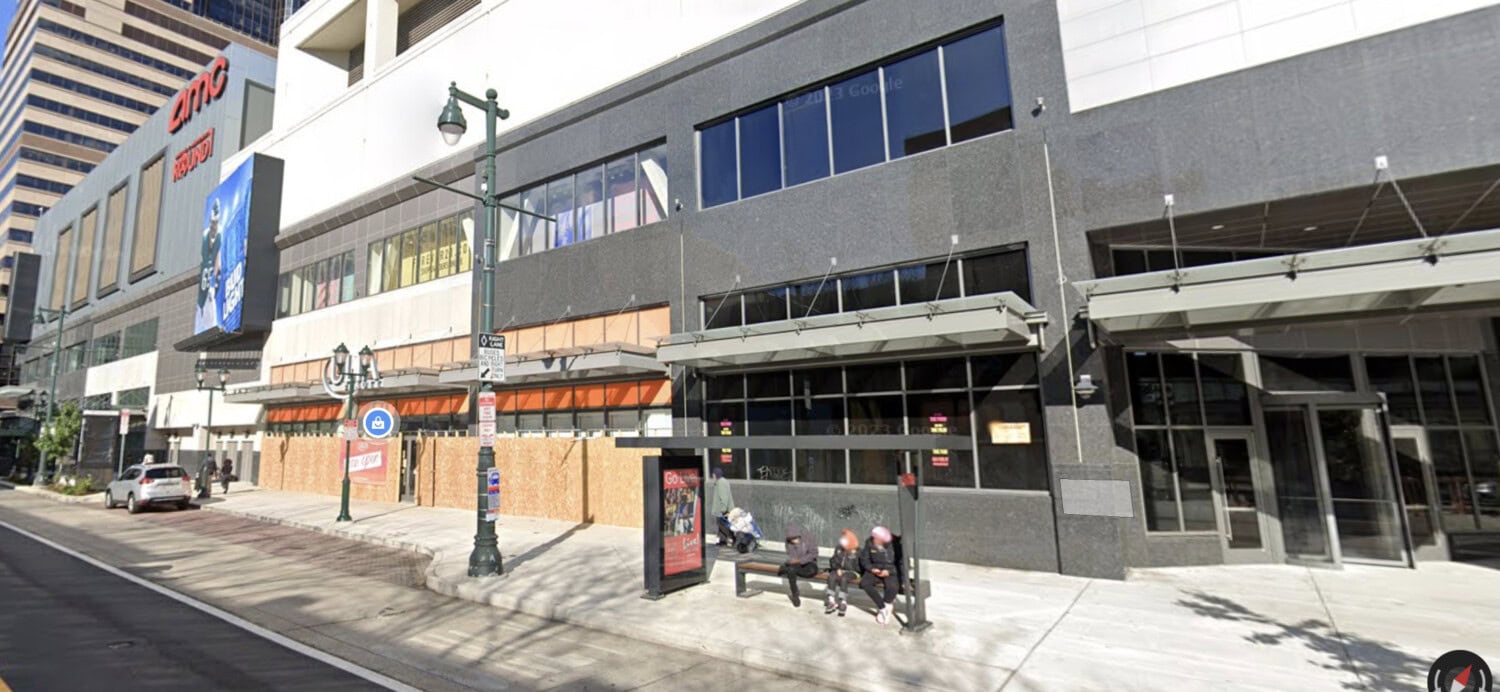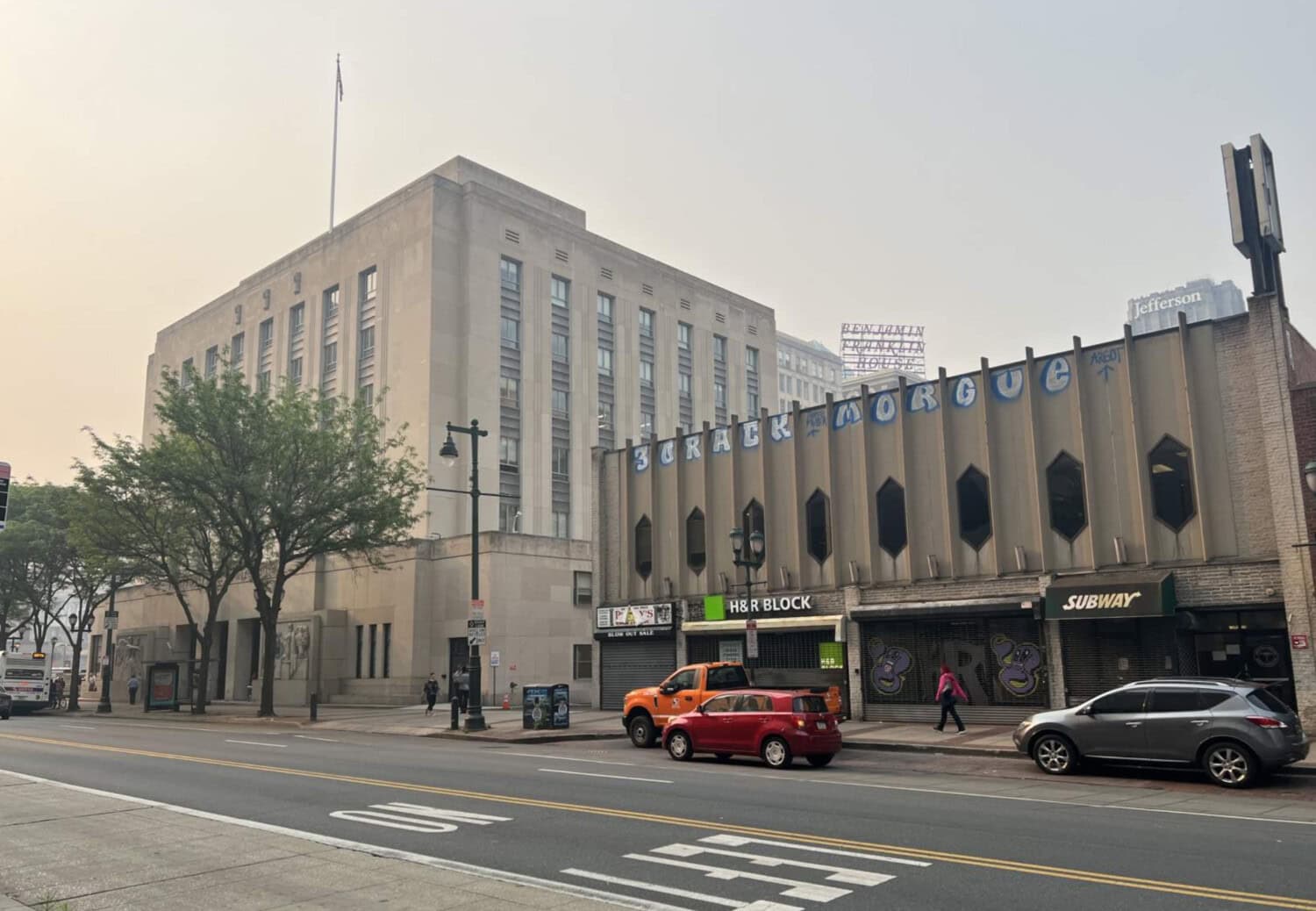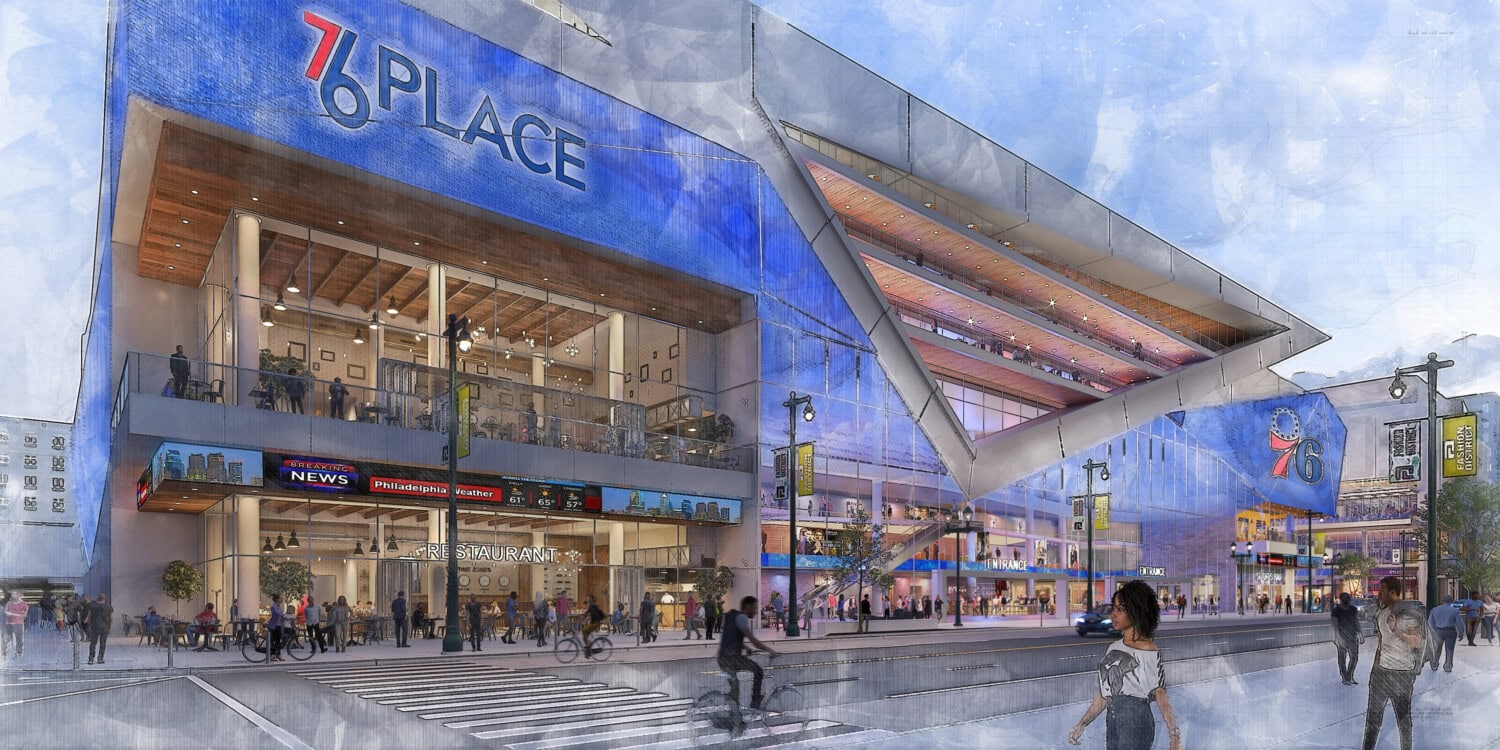This is the first in a four-part series outlining the Philadelphia 76ers’ plan to build a $1.3 billion basketball arena in Philly’s Center City. Throughout the series of in-depth, deeply reported stories, Boardroom will identify the major players of a proposal that has become a complex web of so many aspects of Philadelphia life that will play a large role in determining the long-term future of Center City and Philly as a whole.
Part II: Are the 76ers & Comcast at War Over a Downtown Arena Project? Depends on Who You Ask
Part III: 76ers & Chinatown: Downtown Arena Proposal Forms Deep Divisions
Part IV: The 76ers Want a New Downtown Arena. Here’s How They Get it
The newest member of the Sixers ownership group wants to leave his mark on Philadelphia with his arena aspirations. So, what’s stopping him?
The Philadelphia 76ers‘ quest to build an 18,500-seat downtown arena in time for the 2031-32 NBA season is vastly more nuanced than a basketball team looking for a new home — it’s a comprehensively complex story that combines nearly every element of Philadelphia civic life, including sports, business, real estate, politics, race, corporate power, jobs, transportation, and, of course, money.
Last July, the Sixers announced their plans to build a $1.3 billion arena, dubbed 76 Place, bordering the city’s historic Chinatown neighborhood. Ownership vows to privately fund the project in full. The team reached an agreement to purchase part of the Fashion District Philadelphia mall from existing owner Macerich, with plans to knock it down to create a new anchor in the City Center district atop Jefferson Station, which serves nearly every SEPTA Regional Rail line.
76ers managing partners Josh Harris and David Blitzer named native Philadelphian, local business leader, and real estate developer David Adelman the chairman of both the plan and the newly created development company behind it, 76 Devcorp.
In October, Adelman purchased the roughly 10% stake in the team that was previously owned by Michael Rubin, making his leadership of this project both business and personal.
On a crisp spring morning in late March, Adelman provided Boardroom a tour of the mall and the surrounding area that he hopes will be the Sixers’ future home. As a key part of Center City in obvious disrepair, it’s currently an eyesore in the heart of the country’s sixth-largest city.
Graffiti lined the walls next to the glass entryway of a mall that’s struggled mightily of late with crime and lackluster foot traffic. Across the street, boarded-up storefronts — some of which the 76ers also agreed to purchase for a potential mixed-use project — show signs of urban decay that have worsened since the COVID-19 pandemic.

Adelman said he was approached to help find the team a new home roughly 18-24 months before he bought his Sixers stake. The goal was to not only build a world-class venue with great experiences for fans and players, but to make a community impact. The prospective site would have a strong existing infrastructure and would permit the 76ers to control their own destiny when their current lease at Wells Fargo Center expires in 2031.
The team has played at Wells Fargo since it opened in 1996 in South Philadelphia as part of the broader sports complex where the 76ers, Flyers, Eagles, and Phillies have all played since the 1970s.
“I’ve been here my whole life and I have a real passion for the city in wanting to make a difference,” Adelman told Boardroom. “This will not be a great economic return for us financially, but it’ll be a great civic return and we think that’s important.”
The NBA‘s five newest arenas in San Francisco, Milwaukee, Detroit, Sacramento, and Brooklyn are all located in downtown areas, and like the basketball venues in Brooklyn, Manhattan, Boston, and Washington, DC, 76 Place would be built atop its city’s busiest central transit hub, making the arena accessible for fans across the region. That’s in addition to the 50% of season ticket holders Adelman said either lived or worked in Center City right before COVID. Adelman said the station that serves tens of thousands of riders a day wouldn’t be negatively impacted by potential construction.
By building the arena — which Adelman said would only stand about 15 feet taller than the height of the existing part of the mall that would be knocked down — he hoped to spark an economic revival in Center City with further investment and urban renewal projects. He pointed to the LA Live campus that became the downtown home to the Lakers and Clippers in 1999 as an example of how a new arena can revitalize an area.

Sixers and Harris Blitzer Sports & Entertainment CEO Tad Brown helped the Houston Rockets build and open the Toyota Center in 2003 just prior to his tenure as CEO there from 2006-21, which preceded his departure for Philadelphia. He knew upon joining HBSE in 2021 that ownership wanted a new arena — one with a more intimate feel and better sight lines than the 21,000-seat Wells Fargo Center. There would be fewer suites and luxury boxes than in a traditional larger venue, with more opportunities for communal access built for an environment that would host not just 41-plus NBA games per season, but more than 150 events a year across sports, concerts, and other shows and attractions.
Brown’s role in making 76 Place a reality is currently centered around working with Adelman to make sure all the resources are in place to get the site the team calls Market East municipally approved. They are currently collaborating with the many constituent groups who will be affected, pitching them on why the project would be beneficial for the city in terms of more jobs, a revitalized downtown, and billions in long-term economic impact.
But for the Sixers, there are numerous overarching obstacles and opponents standing in the way of this grand plan. Any one of them could derail their plans for the Center City site.
“If you talk to a lot of folks who have built arenas recently, any major development projects in major cities,” Brown told Boardroom, “you’ll probably consider it similar to a political campaign.”
Chief among the groups vocally opposed to the Sixers’ plan are business leaders and representatives from a Chinatown neighborhood long scarred by large-scale developments and wary of increased crime, traffic, lack of parking, and rising cost of living. The proposed arena would sit at Market Street between 10th and 11th Streets, and across to Filbert Street. It would also take over an existing Greyhound Bus terminal just behind it that was already planning to vacate that site — geographically, that’s arguably where Philadelphia’s Chinatown begins.
A March survey from the influential Philadelphia Chinatown Development Corp., which officially voiced its opposition to the arena that month, found that 90% of business owners and residents oppose 76 Place. A Sixers spokesperson conceded that the biggest challenge to their arena plan is understanding how to adequately address the concerns of Chinatown.
One additional obstacle is convincing a Sixers fanbase that has driven to the sports complex for more than 50 years. One local media member who spoke with Boardroom called Philadelphia old school and parochial, with fans not enthusiastic about the 76ers leaving South Philly and seeing nothing wrong with where they play now.

The team hopes that educational opportunities, community meetings, and sitting down with season ticket holders over the coming months and years would help get fans on board with a Center City arena. An Emerson College/PHL17 poll in May of 600 likely Democratic voters showed 51% of respondents were opposed to the Sixers arena, 30% were in favor, and 19% were unsure.
It’s also a mayoral election year in Philadelphia, with former city council member Cherelle Parker winning the Democratic primary, putting her in pole position to become the first female mayor in the city’s history. She’s previously spoken positively about the arena plan, a potential boost for 76 Devcorp. The first steps in securing arena zoning approval, however, are in the hands of the neighborhood’s council member, Mark Squilla, who will look at a series of team- and city-commissioned studies to determine whether to draft legislation for zoning approval that would then need to pass a City Council vote and receive mayoral approval.
It could also be a race against the clock for the Sixers to get zoning planned before January, when Macerich has a debt maturity due that they may not be able to afford, according to sources familiar with the company. That could lead to a bankruptcy filing that could significantly imperil the team’s plan.
But the 76ers’ biggest adversary in their arena plans may be Comcast and its subsidiary Comcast Spectacor, which owns Wells Fargo Center.
When asked if it opposes the 76 Place plan, Comcast Spectacor told Boardroom that it consistently said it wants what’s best for Philadelphia. Meanwhile, the Sixers organization maintains that Comcast has tried to get in its way at nearly every turn.
“It’s no secret that Comcast is trying behind the scenes to not see this happen,” Adelman said.
Stay tuned for our next story of the series, which will cover the high-stakes dynamic between the Sixers and Comcast Spectacor, two of the most influential business entities in all of Philadelphia.